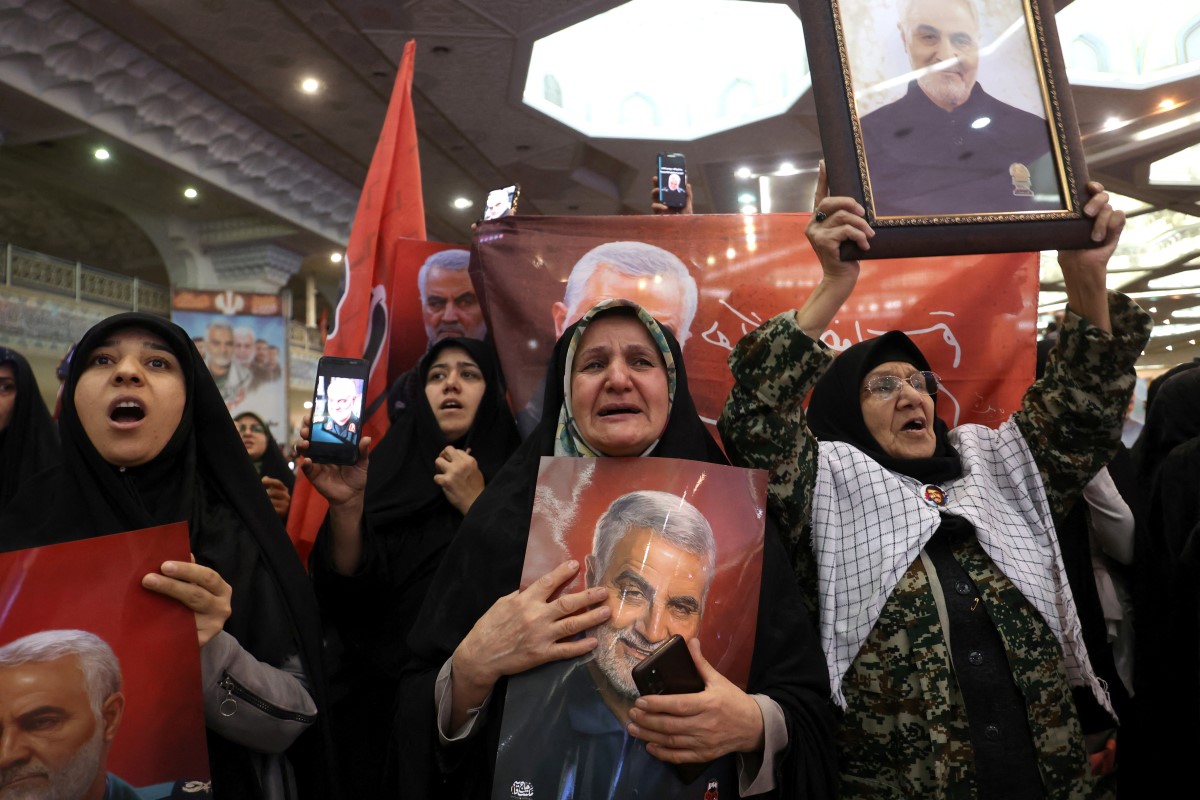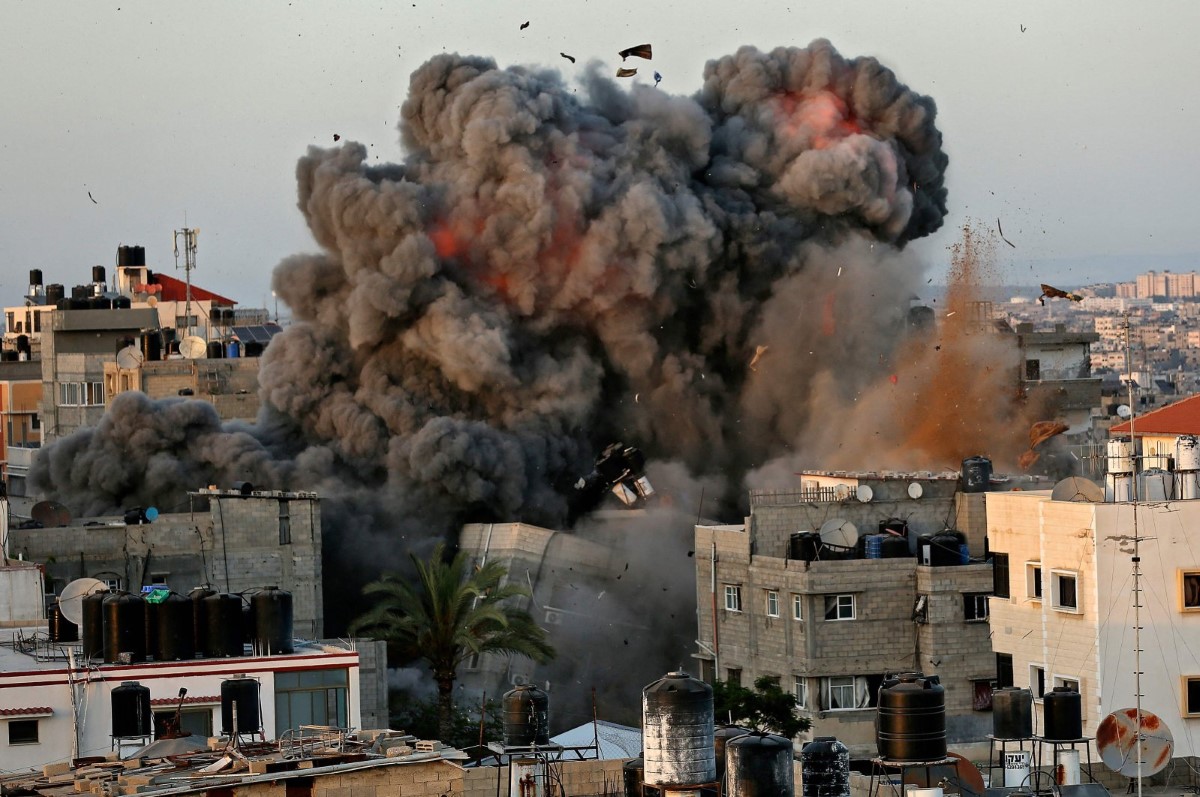Italian journalist, Massimo Fini, comments on the two explosions that on January 3, 2024, killed nearly 100 people and wounded scores at a ceremony in Iran to commemorate commander Qassem Soleimani who was killed by a U.S. drone in 2020. Iranian state television reported a first and then a second blast after 20 minutes during a crowded fourth-anniversary event at the cemetery where Soleimani is buried in the southeastern city of Kerman. The following day, ISIS claimed responsibility in a statement posted on its affiliate Telegram channels.
Coupettes: from Iran to Venezuela, the US fingerprints (but they are losing power)
by Massimo Fini
American and Israeli terrorists have struck again. Of course, Washington and Tel Aviv were quick to deny any involvement. Excusatio non petita, accusatio manifesta1. Oddly enough, the day after the attack, an ISIS claim appeared on Telegram, generically attributed to ISIS and not signed by its current leader Abu Hafs al Husseini al Quraishi. I could have written it myself. Equally curiously, Western media, which had given minimal coverage to the attack in Iran, say a “modest amount,” went to great lengths over the supposed ISIS claim. Corriere della Sera dedicated two pages to it.
The attack in Tehran was bloody, barbaric, and cowardly. It’s unimaginable that the tens of thousands of people who gathered at the Martyrs’ Cemetery in Kerman to honor Qasem Soleimani, the former head of the Pasdaran killed by Americans four years ago in Baghdad (akin to assassinating a Deputy Prime Minister in Western democracies), were all Pasdaran. The attack was thus direct and premeditated against Iranian civilians, and the victims are not a “collateral damage” from some misfire as we’ve recently seen in Ukraine. After all, Americans are not new to such exploits, i.e., directly targeting civilians. At the end of World War II, the US bombed Dresden, Leipzig, and Stuttgart with the clear intention, declared by their political and military commands, to “break the resistance of the German people.” At Hiroshima and Nagasaki, with Japan on its knees, no military target was aimed at, but the Japanese people.
The economic sanctions – and not just economic, but scientific, medical, and military, imposed on Iran by the United States and therefore by their subordinate allies, including Italy, which had excellent business relations with the Ayatollah’s country – are incomprehensible. Iran has signed the Nuclear Non-Proliferation Treaty and has always accepted inspections by the IAEA, the International Atomic Energy Agency, which have confirmed that Iranian uranium enrichment does not exceed 5 percent, i.e., it’s for civil and medical use. To make a Bomb, enrichment must reach 90 percent. Israel has not signed the Treaty but has nuclear weapons; just take a trip to the Negev desert to understand, and anyway, it likes to make it known (to the wise…). But no one has ever dreamed of sanctioning Israel.
What’s the point of sanctions against Iran? The model is always the same: economically strangle a country, create discontent among the population, and therefore the rise of opposition. The United States, more recently, also tried this with Venezuela under Chávez and Maduro. But it backfired. The “young and handsome engineer” Juan Guaidò, on whom the US had bet, had almost no following. In response to this coup attempt, the Venezuelan government did not deploy tanks, soldiers, or police in the streets. The 137 deaths cannot be attributed to Maduro (the police didn’t fire a shot) but to clashes between factions, those for Maduro and those for Guaidò, the latter getting the worst of it.
Curse Hitler also because he gave Israel (let’s not say the Jews, not to get arrested) a kind of pass to commit criminal actions that if committed by any other country would be condemned and sanctioned. Entebbe, 1976, docet. But let’s stick to the present. The 22,000 Palestinians killed after the terrorist attack by Hamas on October 7, which caused the death of 1,300 Israelis, is a 20-to-one ratio. The International Court of Justice in The Hague for “war crimes” has nothing to say about this? If this court really existed Joe Biden, with some of his predecessors, and Bibi Netanyahu (“Bibi” is a curious nickname for a criminal) would be on trial today.
Then there’s the historical aspect regarding Iran. During the Shah’s era, a puppet of the United States, there was a very thin layer of the ultra-rich bourgeoisie that you could meet in London, Paris, and other European capitals, while the rest lived in misery. The Khomeini revolution successfully fostered an intellectual middle class; the Persians, an educated group distinct from the Arabs, benefited significantly from this societal uplift: when I was there during the Iraq-Iran war – and not Iran-Iraq as is commonly said because it was Saddam Hussein who first attacked – my friends knew not only our greats, from Dante upwards, but also Moravia and Savinio, while we know of Persian culture only, at best, ‘Umar Khayyam. It’s this educated bourgeoisie that today, at least in part, rebels against the strict interpretation of Sharia, i.e., ethical norms dating back over a millennium. In any case, Iran is not Saudi Arabia, our ally: if you go to Tehran University, you’ll find more girls than boys.
American leaderships, especially the Democratic ones, realize they are losing the hegemony they had throughout the 20th century and don’t want to resign themselves. For this reason, they are prepared to do anything, even trigger a Third World War. We can only hope for the prudence and wisdom of the Ayatollahs, who for now have limited themselves to stating that Iran’s reaction will be “severe” – a soft declaration. This is the sorry state we’ve come to.
Il Fatto Quotidiano, January 7, 2024
NOTES
1. “Excusatio non petita, accusatio manifesta” is a Latin phrase that translates to “An excuse that has not been sought [is] an obvious accusation.” In other words, it suggests that offering an unsolicited excuse or defense often reveals guilt. The phrase implies that if someone is quick to defend themselves without being accused, they may inadvertently reveal their wrongdoing or consciousness of guilt.
2. The word “docet” is a Latin term that translates to “it teaches” or “it demonstrates” in English. It’s the third-person singular present active indicative of the verb “docēre,” which means “to teach.” The term is often used to conclude a statement or observation, indicating that it serves as a lesson or demonstration of the point being made. For instance, “Experience docet” would imply “Experience teaches” or “Experience demonstrates.”


